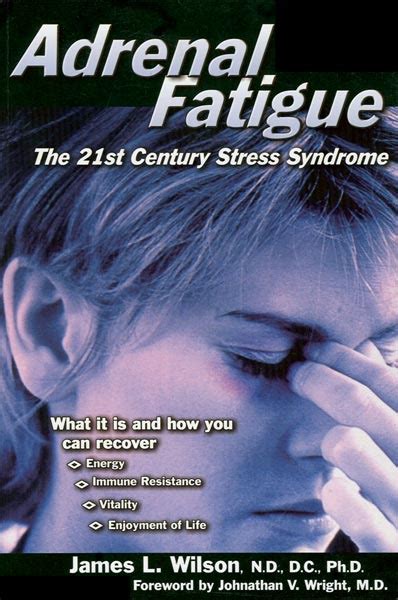In this blog post, Patricia S. Lemer explains how humor helps lower stress and how laughter helps those with autism and other special needs.
Humor Lowers Stress
“I wike you, too!” I bet you are smiling. “A smile is the shortest distance between two people,” says Victor Borge. It takes 17 muscles to smile and 45 to frown. Why waste all that energy? Jogging your insides enhances respiration and circulation, oxygenates the blood, suppresses the stress-related hormones in the brain, and activates the immune system.
I learned these important facts at the 14th annual International Conference on The Positive Power of Humor and Creativity. This hilarious event, sponsored by The HUMOR Project in Saratoga Springs, NY, the brainchild of Joel Goodman, has attracted over 13,000 people from all over the world.
Attendees were nurses, doctors, teachers, clergy, mental health professionals, and parents working in hospitals, hospices, rehab centers, schools, prisons, and in home health care. Many have bosses who never say a kind word. Most were stressed out and burned out. All received continuing education credits for laughing until they hurt.
In Humor 101, we learned how to take serious things humorously and ourselves lightly. Emulating Patch Adams, MD, we wore silly hats, blew bubbles and pasted sticker kisses on one another.
We learned to use magic tricks to get attention, and light, sound and colors to sustain attention. We practiced Tongue Fu martial arts for the mind and mouth. A nun comically brought the spiritual into “play” with side-splitting stories of her travels abroad.
Although I depend daily on humor, I had forgotten how to be silly. Elizabeth Gerlach reflects in her new book, Just This Side of Normal: Glimpses Into Life with Autism, that play is just as important as everything else in life. Throwing ourselves into work, are we in danger of getting ensnared by a sense of self-importance and power?
How to Keep Humor Alive
The three-day fun fest ended with a mime demonstrating five acts from the circus that are models for keeping humor alive in your life:
The Clown
Working and living with children with special needs is serious, and we must take advantage of each day and every therapy session to integrate autism and humor. Mothers from Hell is a group of passionate advocates for their children who have developed 10 outrageous tips for surviving your IEP meeting.
The clown teaches us lightheartedness. Whatever our loss, we need to “get over it.” The funny stuff is there, waiting for those with a sense of humor to seek it. Don’t be afraid to laugh, to lighten up, to enjoy the amusing things people say and do.
The Juggler
Juggling schedules, home and work, and the needs of all family members is an enormous job. The juggler teaches us to focus. Only by focusing and keeping our eyes on our mission can we reach our goals. We must screen out daily worries of time and money, the media blitz (blow up the TV!), and other distractions.
The Unicyclist
Moving from thought to deed is a huge step. The unicyclist is successful because he knows where his center is. (It’s in the middle… duh!) The unicyclist teaches us to take action and to stay centered. With action comes freedom. Action involves movement, which enhances every part of our being. Keep your actions simple, without complications, and you will stay on track and centered like our circus friend.
The Fire Eater
Once we take action, there is no turning back. Putting lit torches in your mouth is analogous to a child taking those first steps without a walker or that first week without milk in the diet. (Why should people drink what comes out of cows’ udders, anyway?) The Fire Eater teaches us to take action in small steps. After that first step, a natural flow begins a series of successes. Feelings of accomplishment add further encouragement. He can now get to the bathroom himself! She actually likes soy milk!
The Wire Walker
No tool is as free, available and effective as our imagination. Children learn early to escape reality when it is meaningless and painful, and they go somewhere else. Dr. Stanley Greenspan advises us how to join kids in their worlds during FloorTime. Interacting is how we make emotional connections.
The Wire Walker teaches us visualization: the power of the dream. If you can imagine it, you can make it real. This technique is frequently used today in healing, by athletes, and as an amazing tool for children with special needs.
The Laughing Classroom
Do you want to become a laughing teacher? I highly recommend The Laughing Classroom. Looking for props to catch your kids’ attention? Everything from smiles on sticks to happy-face bean bags are in the Sourcebook catalog, free from The Humor Project (800-225-0330) or at www.humorproject.com
About Patricia S. Lemer LPC MEd
Patricia S. Lemer is a licensed professional counselor, holding a Masters of Education in counseling and learning disabilities from Boston College and a Masters in Business from Johns Hopkins University. She practiced as an educational diagnostician for over 40 years.
She was a co-founder and served as Executive Director of the international non-profit organization Developmental Delay Resources (DDR). After DDR merged with Epidemic Answers, she became Chairman of the Board. When she retired from the board, she became an emeritus board member.

She is the author of three books, the most recent of which is Outsmarting Autism, Updated and Expanded: Build Healthy Foundations for Communication, Socialization, and Behavior at All Ages (North Atlantic Books, 2019).
Lemer wrote over 50 editorials for "New Developments," the quarterly newsletter of Developmental Delay Resources (DDR), from 1995 - 2009. When DDR wound down, she wrote an online blog, "After the Diagnosis, Then What?" from 2009-2017. Her articles and blogs have been updated and archived on the Epidemic Answers website.
Since 2019, Patricia Lemer has recorded a bimonthly podcast, "The Autism Detective." In these hour-long shows, she interviews parents and professionals about their experiences in maximizing the potential of individuals on the autism spectrum. Over 100 episodes are available on Spotify and other online platforms. To learn more, go to PatriciaLemer.com and OutsmartingAutism.com
Still Looking for Answers?
Visit the Epidemic Answers Practitioner Directory to find a practitioner near you.
Join us inside our online membership community for parents, Healing Together, where you’ll find even more healing resources, expert guidance, and a community to support you every step of your child’s healing journey.
Resources
Books
Gerlach, Elizabeth. Just This Side of Normal: Glimpses Into Life with Autism. Future Horizons, 2004.




